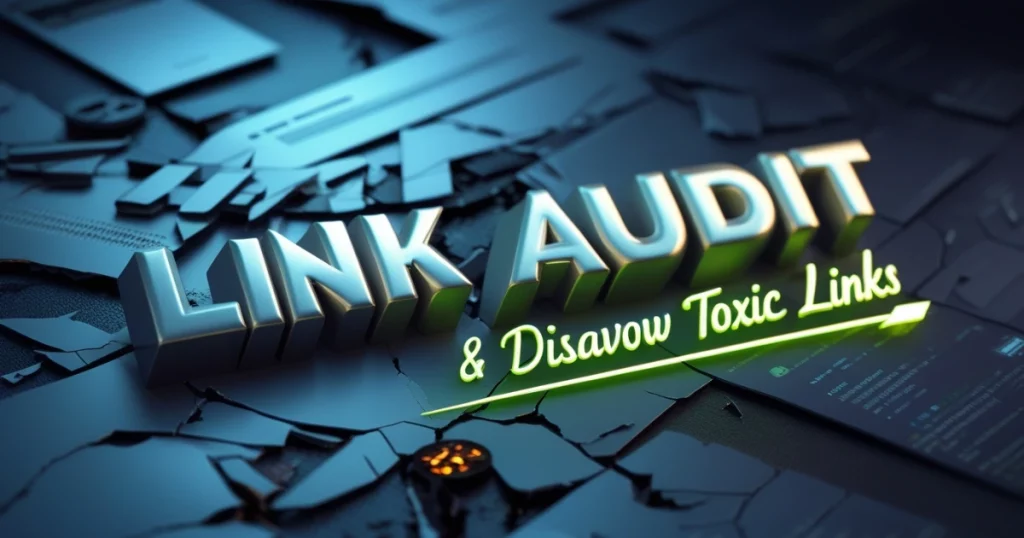Domain Authority (DA) is a search engine ranking score developed by Moz that predicts how well a website will rank on search engine result pages (SERPs). It’s scored on a logarithmic scale from 1 to 100—meaning it’s much easier to grow from 10 to 20 than it is from 70 to 80. The higher your DA, the stronger your site’s potential to rank competitively in search.
Moz calculates Domain Authority using a range of SEO metrics, including linking root domains, the quality and relevance of inbound links, and overall link profile strength. It’s not a metric used by Google, but it’s widely respected in the SEO world as a proxy for a website’s authority and trustworthiness.
It’s important to distinguish Domain Authority from Page Authority (PA). While DA measures the ranking strength of an entire domain or subdomain, PA focuses on the ranking ability of a single page. For example, your homepage might have a PA of 60, while your blog post has a PA of 35—even though both belong to a domain with a DA of 50.
Understanding DA gives you a clear benchmark for SEO performance and helps guide link building and content strategy decisions.
Why Domain Authority Matters for SEO

While Domain Authority (DA) isn’t a direct ranking factor in Google’s algorithm, it’s still a powerful metric that reflects a website’s ability to compete in search. Developed by Moz, DA provides a composite score based on link profile strength, helping SEO professionals estimate how likely a domain is to rank for competitive keywords.
Search engines may not use DA explicitly, but the components that influence it—like high-quality backlinks, domain relevance, and site trustworthiness—are real ranking factors. In that sense, a high DA usually indicates a strong SEO foundation. If your DA is rising, it’s a signal that your site is becoming more competitive in the organic search landscape.
DA also plays a big role in perceived trust and authority. Users (and even other marketers) are more likely to trust and link to domains with higher scores, which further strengthens your SEO visibility. From a business perspective, a strong DA boosts your brand’s credibility and makes it easier to earn referral links and media mentions.
Most importantly, there’s a clear correlation between Domain Authority and organic traffic. Sites with higher DA consistently outrank lower-authority competitors, especially for high-volume, high-value keywords—making DA a critical benchmark in your SEO strategy.
What Is a Good Domain Authority Score?

A “good” Domain Authority score depends heavily on your niche and competition. Generally, the scale breaks down like this:
- Low: 1–20 (common for new or low-content websites)
- Medium: 21–50 (growing authority, often with active SEO efforts)
- High: 50+ (established sites with strong backlink profiles)
It’s crucial not to chase arbitrary numbers. A DA of 30 in a niche with weak competitors could dominate the SERPs, while the same score in a highly competitive industry like finance or travel might barely make a dent.
This is where competitive analysis comes in. Use tools like Moz, Ahrefs, or SEMrush to benchmark your DA against direct competitors—not against giants like Amazon or Wikipedia.
Set realistic goals based on where you are and who you’re up against. If most competitors are around DA 25–35, aim to surpass them, not hit 90. Progress is relative—and steady growth is far more valuable than chasing an inflated score.
6 Proven Ways to Increase Your Domain Authority

Improving your Domain Authority doesn’t happen overnight. It takes a strategic blend of technical SEO, content development, and off-site credibility. Here are six powerful ways to raise your DA and strengthen your overall SEO position.
1. Build High-Quality Backlinks

Backlinks remain the most important driver of Domain Authority. But not all links are created equal. You need backlinks from high-authority websites that are relevant to your niche. One quality backlink from a trusted source (like a leading industry blog or digital news outlet) can be more valuable than dozens of low-quality ones.
Prioritise contextual backlinks—those embedded naturally within relevant content. These carry more weight than spammy comment links or forum signatures. Guest blogging, digital PR campaigns, and thought leadership pieces are effective tactics for earning these links.
If you’re targeting audiences in Thailand, develop a local backlink strategy. Focus on regional directories, Thai-language publications, local influencers, and business partnerships. Google values location relevance—so earning backlinks from trusted .th domains can dramatically boost your local SEO performance and DA.
Quality trumps quantity every time. Avoid link farms or shady outreach schemes. Google’s algorithm is smart—and so is Moz’s. Smart, earned links from credible sources will push your Domain Authority in the right direction.
2. Conduct a Link Audit & Disavow Toxic Links

Not all backlinks are beneficial—some can hurt your DA. Spammy, irrelevant, or manipulative links from dodgy sites can trigger algorithmic penalties and damage your trustworthiness.
Run regular link audits using tools like Moz Link Explorer, Ahrefs, or Google Search Console. Identify and disavow links from suspicious or irrelevant sources.
If left unchecked, these toxic backlinks can drag down your SEO performance and prevent your DA from improving. By cleaning up your backlink profile, you’re sending strong trust signals to both Moz and search engines.
3. Optimise On-Page SEO

You can’t build authority if your own site is a mess. Solid on-page SEO helps search engines understand your content and strengthens internal authority flow.
Start with a smart internal linking strategy. Link related pages together using keyword-rich anchor text. This passes link equity across your site and boosts the visibility of key content.
Refine your title tags, meta descriptions, and headers. Make sure each page is optimised for relevant keywords and follows SEO best practices. This improves crawlability and indexing efficiency.
Don’t forget image alt text, schema markup, and URL structure—these technical details enhance your SEO foundation and indirectly support your DA growth.
4. Improve Content Quality & Topical Authority

Search engines reward sites that demonstrate topical authority—in-depth expertise across a specific subject. To build that, you need high-quality, comprehensive content that answers user intent in full.
Instead of publishing dozens of shallow posts, focus on creating pillar content: long-form, in-depth resources on core topics. Then build content clusters around them—supporting articles that explore related subtopics and interlink with your pillar.
Regularly update existing posts to keep them relevant and accurate. Google values freshness, especially in fast-moving industries.
This content strategy not only drives traffic but earns natural backlinks from other websites—fuel for your Domain Authority.
5. Improve Website Technical Health

Technical issues can silently sabotage your DA. Google and Moz both assess the technical integrity of your website.
Ensure your site is mobile-optimised, secure (HTTPS), and fast-loading. Slow or unresponsive pages increase bounce rates and reduce crawl efficiency.
Run regular technical audits using tools like Screaming Frog or SEMrush. Check for broken links, redirect chains, duplicate content, and crawl errors.
Fixing these issues improves user experience, helps search engines crawl your site more efficiently, and reinforces your overall authority signal.
6. Boost Social Signals

While social signals aren’t direct ranking factors, they indirectly impact your Domain Authority by driving visibility and backlinks.
Encourage content sharing across platforms like Facebook, LinkedIn, and Twitter. Add share buttons, quote blocks, and engaging visuals to prompt user interaction.
Leverage social proof—testimonials, user-generated content, and influencer shoutouts—to increase trust and credibility. The more your content gets seen and discussed, the more likely it is to earn backlinks from reputable sources.
Social engagement fuels link-building, builds brand awareness, and adds momentum to your overall SEO efforts—making it a key ingredient in your DA strategy.
How Long Does It Take to Improve Domain Authority?

Improving Domain Authority is a long-term game, not a quick fix. Because Moz updates DA scores periodically and the metric is based on link profile growth and site authority, meaningful changes often take 3 to 6 months or longer, depending on your starting point and SEO efforts.
Clients and agencies alike need to set realistic expectations. Boosting DA from 10 to 20 is much faster than moving from 40 to 50. The higher you climb, the harder it gets.
Consistent backlink acquisition, technical optimisation, and content quality are key—stick to the strategy and trust the process.
Key Takeaways: Boosting Your Domain Authority
Summary Box:
- Domain Authority isn’t everything, but it’s a reliable benchmark.
- Prioritise high-quality backlinks, valuable content, and technical site health.
- Local SEO relevance—especially in Thailand—can accelerate DA growth.
Consistent effort and strategic focus are what move the needle long-term.
Final Thoughts
Ready to take your website authority to the next level?
Partner with Northern Kites for a tailored backlink strategy and SEO game plan that delivers measurable results.
📩 Contact us today or book a free strategy call to start boosting your Domain Authority with precision.


